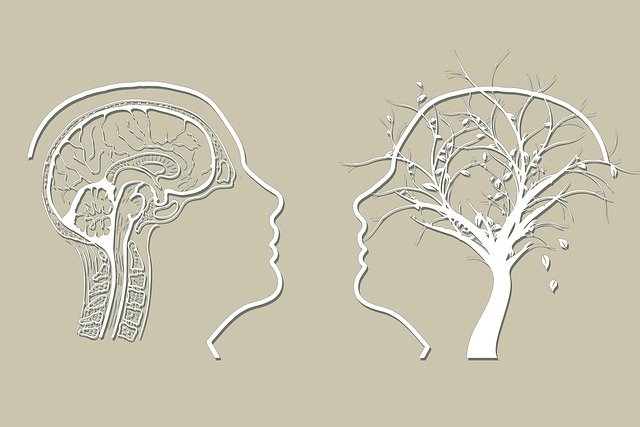Emotional Intelligence (EQ) is a vital tool in managing panic disorder and anxiety attacks, with therapy playing a central role. Through EQ strategies, individuals learn to recognize and control their emotions during crises, reducing anxiety responses. Key techniques include conflict resolution, crisis intervention, mindfulness meditation, deep breathing, and cognitive-behavioral therapy (CBT). These methods help adults develop coping skills, challenge negative thoughts, and improve self-regulation. By gaining emotional awareness and building resilience, individuals can enhance their mental well-being, interpersonal relationships, and overall quality of life, making Therapy for Adults with Panic Disorder and Anxiety Attacks an effective approach to fostering EQ.
Emotional intelligence (EQ) is a powerful tool for navigating life’s challenges, especially for those dealing with panic disorder and anxiety attacks. This article explores the profound impact of EQ on mental health and provides practical strategies for building resilience. We delve into specific techniques for managing panic attacks through emotional awareness and highlight the essential role of therapy in enhancing EQ for adults with panic disorder, offering a comprehensive guide to improved well-being.
- Understanding Emotional Intelligence and Its Impact on Mental Health
- Identifying and Managing Panic Attacks through Emotional Awareness
- Strategies for Building Resilience and Coping Skills
- The Role of Therapy in Enhancing Emotional Intelligence for Adults with Panic Disorder
Understanding Emotional Intelligence and Its Impact on Mental Health

Emotional intelligence (EQ) is a powerful tool for enhancing mental health and overall well-being. It refers to the ability to recognize, understand, and manage one’s own emotions, as well as empathize with and navigate the feelings of others. This skill set plays a significant role in promoting resilience, fostering healthy relationships, and mitigating stress. For individuals struggling with panic disorder and anxiety attacks, EQ can be transformative.
Therapy for adults with these conditions often incorporates emotional intelligence-based strategies. By learning to identify and manage their emotions, individuals can reduce the intensity of anxiety responses and gain better control during crises. Moreover, conflict resolution techniques and crisis intervention guidance, which are essential components of EQ development, enable people to navigate challenging situations more effectively, thereby improving their mental health outcomes. Risk assessment for mental health professionals also highlights the importance of emotional intelligence as a protective factor in managing vulnerable populations.
Identifying and Managing Panic Attacks through Emotional Awareness

Panic attacks can be overwhelming, but emotional awareness plays a pivotal role in managing them effectively. By identifying the triggers and physiological symptoms early on, individuals with panic disorder or anxiety attacks can develop coping skills to navigate these intense moments. Therapy for Adults with Panic Disorder focuses on helping clients recognize their emotional responses and understand that what they feel is a normal reaction to stress, not a sign of weakness.
This awareness is crucial in mastering emotional regulation techniques. Through therapy, adults learn to breathe deeply, challenge negative thoughts, and redirect their focus. These strategies empower individuals to gain control and reduce the frequency and intensity of panic attacks. The goal is not just anxiety relief but long-term emotional resilience, enabling folks to lead fulfilling lives despite the challenges of panic disorder.
Strategies for Building Resilience and Coping Skills

Building resilience is a key component of emotional intelligence development, especially when it comes to managing anxiety and panic disorders. One effective strategy involves coping skills development. Techniques such as mindfulness meditation, deep breathing exercises, and cognitive-behavioural therapy (CBT) can empower individuals to recognize and challenge negative thought patterns during moments of distress. These practices enable better self-regulation, allowing for a calmer response when faced with anxiety-inducing situations.
For those seeking professional support, risk management planning is an essential aspect of mental health care. Healthcare providers, particularly those specializing in treating panic disorder and anxiety attacks, can guide patients in creating personalized strategies. This includes identifying triggers, developing safety plans, and learning relaxation techniques. Additionally, cultural competency training for healthcare professionals ensures a more inclusive and effective support system, catering to diverse patient needs and backgrounds.
The Role of Therapy in Enhancing Emotional Intelligence for Adults with Panic Disorder

For adults suffering from panic disorder and anxiety attacks, therapy plays a pivotal role in enhancing emotional intelligence. Through structured sessions with qualified professionals, individuals can learn effective coping skills development tailored to manage their specific challenges. Therapies like cognitive-behavioral therapy (CBT) focus on identifying and changing negative thought patterns, thereby reducing the frequency and intensity of panic episodes. This process not only improves overall mental well-being but also fosters empathy building strategies, enabling better understanding and connection with others.
By delving into these therapeutic approaches, adults with panic disorder can develop a profound sense of self-awareness—a cornerstone of emotional intelligence. They learn to recognize triggers, manage physical symptoms, and effectively communicate their feelings, all of which contribute to enhanced interpersonal relationships. The coping skills acquired during therapy empower individuals to navigate stressful situations with resilience, boosting their emotional intelligence and overall quality of life.
Emotional intelligence (EI) is a powerful tool for managing mental health, particularly for those experiencing panic disorder and anxiety attacks. By understanding and identifying emotional triggers, individuals can gain valuable skills to navigate difficult situations. The article has explored various strategies, from awareness of panic attacks to building resilience, all crucial steps in enhancing EI. Specifically, therapy for adults with panic disorder plays a pivotal role in developing coping mechanisms and improving overall well-being. Through professional guidance, individuals can learn to manage anxiety effectively, fostering a sense of control and emotional balance. These insights underscore the importance of addressing mental health concerns head-on, ensuring a brighter and more manageable future.









